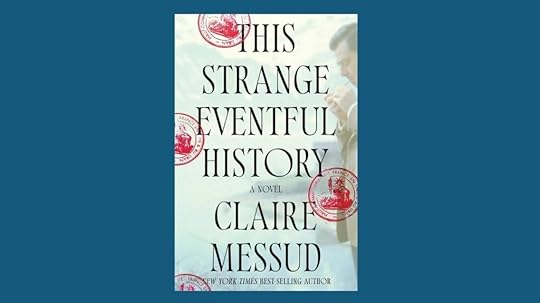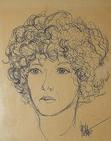This Strange Eventful History by Claire Messud – Book

From a Google Image Search – NPR
Claire Messud’s book This Strange Eventful History tells the fictionalized life of her extended family. Not quite a memoir, it resembles an Ancestry test result, fleshed out with familial and historical details, that resurrects the essences of a family’s life. Gaston and Lucienne live in Algeria, a colony of France which promises residents that they are French citizens, equal in every way to Frenchmen. As the Nazi’s are beginning their occupation of France, Gaston, a civil servant climbing the ranks, thinks about volunteering for the French navy. He ends up going to Beirut where his bosses direct him, which is not into the French navy. His family, living in France at the time, leaves France to return to Algeria. There are two young children in the fleeing family of Gaston and Lucienne; François and Denise. When the war ends, the Cassar family is still living in Algeria. Messud describes Gaston’s decision and his relationship with his wife in her elegant prose:
“Back and forth, Gaston had argued all possible permutations in his head in the forty-eight hours since hearing the broadcast. He’d considered the choice before him while walking, while packing, while lunching with Cotigny, though he didn’t speak of it to his adjunct. He wished above all that he could speak to Lucienne; in the night he spoke aloud to her untouched pillow, as if she lay beside him, though it smelled only of laundering. How could he know what to do without knowing her mind? He thought of them as joined by an invisible thread, always united, one heart in two bodies. The two halves of Plato’s Symposium, who had found each other and their life’s purpose.” (p. 58)
In possession of her grandfather’s notes (all 1000 pages), Messud offers us views of a man’s life and his inner thoughts as he moves from the public sector back to the private sector and becomes as successful as he will become. Then we follow his son François to school in America and to his life with his wife, Barbara. Denise’s life is portrayed just as believably. The Cassar family expands as family members age and have children.
Messud describes a time after WWII when Algeria wins its independence from France and the family has to leave the country they know best to return to France. Many countries gave or were forced to give independence to their colonies in the twentieth century. Gaston’s upheaval was experienced by plenty of others and led us all to many discussions about the colonizing motivations of our forebears. Despite our negative judgements, if we go to space, I think we will be colonizers once again.
Although this book may be considered too literary for some readers, Messud creates for us the various places where these characters reside and immerses us in lives that we can comprehend but which are most likely dissimilar to our own lives. It reminded me of the biography of Winston Churchill, although without the degree of historical significance of Churchill. Walking with Destiny by Andrew Roberts shows us Churchill living through some of the same historical eras as the Cassars, and similarly takes us to geographic locations we may never have visited with much discussion of Britain’s colonies.
Now I will apologize in advance for expressing maudlin thoughts, but I am at an age where my demise could be imminent. Messud not only covers the lives of these family members; she also covers their deaths. She doesn’t dwell on biological details, just on the way a full life dwindles and becomes circumscribed as we age, or if we have a fatal illness. We die alone, she does not pull her punches about this, but our deaths do affect those who love us. The details of the care we receive as life leaves us (or we leave it) may not resemble those enjoyed by the Cassar’s who lived in different times and who did not have to worry about financial matters, but still Messud has us contemplating the possible details of our own dying moments. I appreciated time spent with Claire Messud’s family, fictionalized or real. Good stuff. In fact, Messud’s book is shortlisted for the Booker Prize, 2024.



